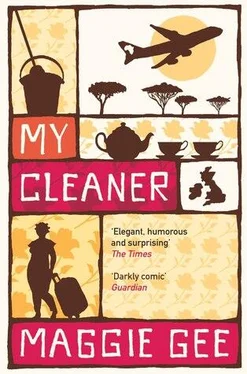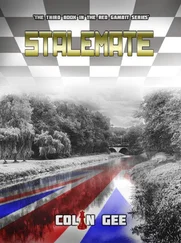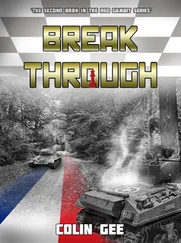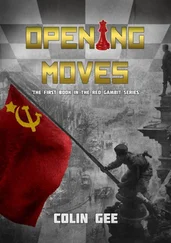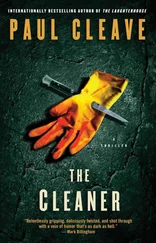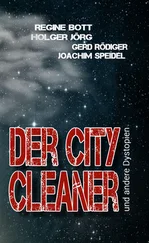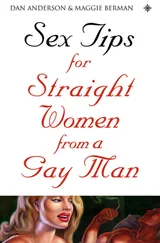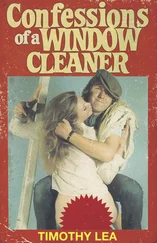Mary looks longingly out of the window at the stream of traffic pressing on to the capital, where Charles is sleeping on the edge of the airport, beside the quiet beds of the aeroplanes, the beautiful great birds which, after the snow, will soar up into the red sky again, to warm Entebbe, to Uganda. And she wants to be in them, flying away, she is filled with desire for the skies of home, to look up at the kabakanjagala tree, the tree whose name means ‘the king loves me’, its red flaring generous mouth in the sunlight, and Charles loves me, the king loves me…
Then Justin is shaking her by the shoulder. “You’re asleep, Mary. Don’t sleep, don’t leave me.”
“It doesn’t matter, the traffic isn’t moving. Maybe it will never move again.”
“You have to stay awake in case we get going.”
She looks at him, coldly. He is a great baby, but he isn’t a baby, he’s a rich young man. His cheeks look loose, his mouth is sullen. He is too old to say, “Don’t leave me.” She isn’t his lover, she isn’t his mummy, and she has been driving for nearly seven hours. Mary has had enough of him.
“Justin, I want you to listen to me. I need to sleep for an hour or two. Probably the traffic isn’t going to move, but if it does, you will have to do the driving.”
“Mary!” he whines, in explosive panic, “you have to be joking, you know I can’t drive, my mother made you promise to look after me!”
“Yes,” says Mary. “Nineteen years ago. But now it is over. You are no longer a baby. I do not have to look after you. Now I shall get out so that you can take over.”
She is wrapping his blanket tighter round her shoulders, she is opening the door, she is getting out—
And Justin starts sobbing and panicking as the snow and the night whirls in through the breach, the terrible terror of adult life, where he will be cold, and no one will love him. The harsh air saws at his nose, his throat. “Where are you going! You can’t get out!”
And she shouts, into the loud buffeting wind, “I’m not getting out, I’m just making space so you can move into the driver’s seat,” but she sees him still sitting there, shouting and sobbing, his face going pink as he gets more indignant, and she suddenly realizes he’ll never do it, while she is there he will always be a baby who expects Mary to be his nanny, his second mother, his cleaner, his driver — the wind howls around her ears, pure pain, and in thirty seconds her fingers are freezing. She shouts, “Move across, or else I’m going,” and he doesn’t move, he just sits there shaking, a boy in a bubble, a frozen boy, and Mary suddenly knows what to do.
“Goodbye, Justin, I love you,” she says. “Remember that you are a good driver. Tell your mother I tried to look after you. But now you will have to take care of yourself.” And with that, Mary firmly closes her door. She plods to the right of the bonnet of the car, going slowly, sternly so as not to fall over, and makes for the central reservation, and Justin half rises in his seat, Justin half tries to follow her, because on her own she will surely be killed, and on his own he will surely die, and he shouts at her ‘Mary, Mary, be careful’, but he sees her climb sturdily over the barrier, a moving mountain of coat and blanket that slowly gathers a veil of snow; then she crosses, deftly, through the north-bound cars, though as each one passes Justin gasps and winces; and he is still slumped in the passenger seat, in a solid ice-field of south-bound traffic, when he sees a big lorry in the northerly slow lane veer over in Mary’s direction, then stop, and he thinks, some great trucker will take her away, some man with great muscles and a dark blue chin, but after a few minutes the lorry starts up again, and Mary’s still there, still plodding northwards, and as she gets smaller, she looks like a peasant, huddled under her hump of blanket, and he can no longer see her face, and she trudges along like all the earth’s peasants, fighting their way north through a world of snow.
Justin feels terror, and impotent anger, and hot tears rush into his eyes, but as he watches her recede in the distance, moving doggedly but infinitely slowly, he suddenly thinks of Zakira, pregnant, in the lumbering slowness of her final weeks. How she needed him to look after her. And he discovered that he could do it. That he could be a man, a father. He flexes his hands. He peers forward and assesses it. Only 40 or 50 metres to the exit. Justin slides over and takes the wheel.
Mary knows inside that she is strong as an ox, that she can walk for ever, all the way back to London. When her friend was ill in Kiwoko hospital and she was a student at Makerere she often walked half a day to visit her, carrying melons, sliced bread and clean clothes. If only she had gloves. In all her life she has only owned one pair of gloves, a rainbow-striped wool pair she wore in winter in the early morning life she led as a cleaner, and they must have fallen apart long ago, she screws up her eyes and the lids make rainbows, rainbow strands of nothingness, there must be ice on her lids, her lashes, and her hands are like ice, they have no separate fingers, two blockish things that she raises with difficulty, trying to fend off the moths of sleep, the cold soft wings of the hungry spirits…
Jamie is dead. She can go to him .
She keeps on walking, though she’s going slower. She remembers the walk in Vanessa’s village, when the brambles caught them and the thorns scratched them. Looking back from the present, it seems bathed in sunlight. They knew where they were going, everything was easy. Mary intends to hitch to London, but only one vehicle has stopped to date, a thin white-faced man in the cab of a huge lorry who indicated she should suck his penis, and she mimed back that he should fuck himself, which at the time gave her a feeling of freedom, but now she no longer feels free, or brave, and the exhilaration of her choice has gone.
Now she no longer feels anything at all except the heaviness of keeping on walking, and even if she wants to hitch, she can’t, because she can no longer lift her hand, or turn her head towards the traffic behind her, but every time a car passes, she wobbles, almost knocked sideways by the weight of cold air, and now the worst pain has passed from her hands and is turning her ears to lumps of hot ice, two growing tumours of burning coldness, pressing her eardrums until they must burst, and then even that pain begins to grow numb, and the noises turn to a single roaring, a single battering, stunning loudness.
So that when someone drives up the hard shoulder behind her, blowing loudly on his horn again and again, letting down his window, waving and beckoning, at first she hears nothing, then the car is upon her, and for a moment she thinks she will be killed, and then she realizes, it’s Justin, laughing.
“Get in, Mary. We are driving back to London.”
Vanessa’s woken at nine by a worried-looking Lucy, still in her pyjamas, frowning gently down at her: she has been listening to the news in bed. “They say about five hundred motorists are trapped. Their motorway completely froze up. There are snow-ploughs and ambulances out.”
“Is anyone hurt? Tell me nobody’s hurt. Nobody’s dead. Please tell me that.”
Lucy’s stricken face seems to say the opposite. Vanessa enters the zone of horror.
So when Justin telephones, nervous, guilty, at ten o’clock, having got four hours’ sleep, and tells his mother that they had to turn back, they will not be coming, but they are both safe, she does not complain, she sobs with relief, and when Mary comes on the line to speak to her, Vanessa doesn’t care that some Ugandan will be staying, she says ‘Yes’ at once, “Yes, yes, of course’, and says Mary must help herself ‘to whatever’, and ‘of course, Mary dear, take care of Justin.”
Читать дальше
